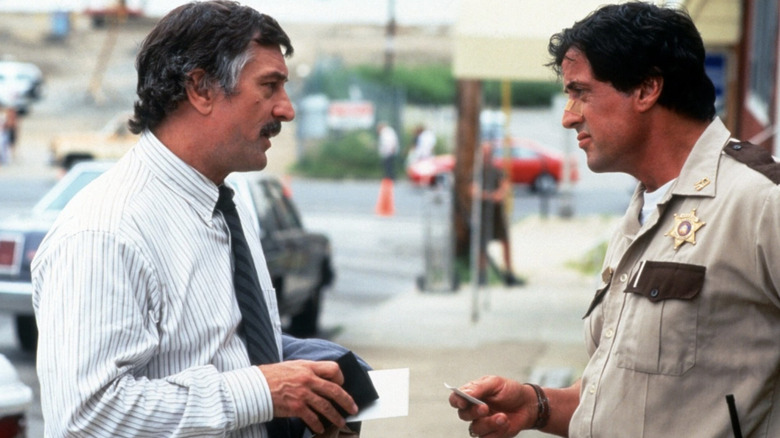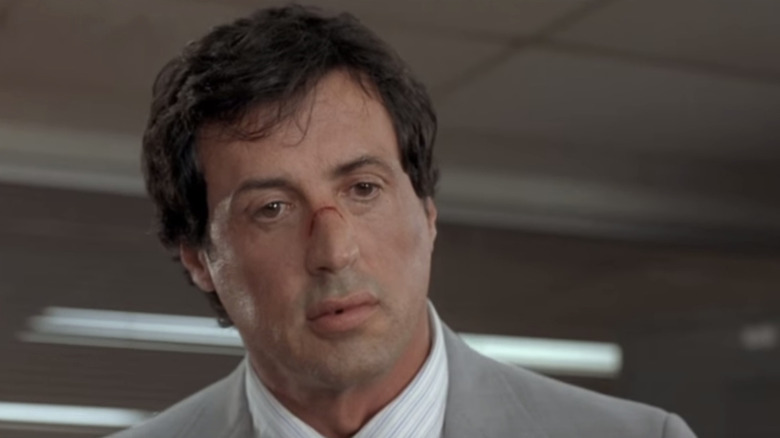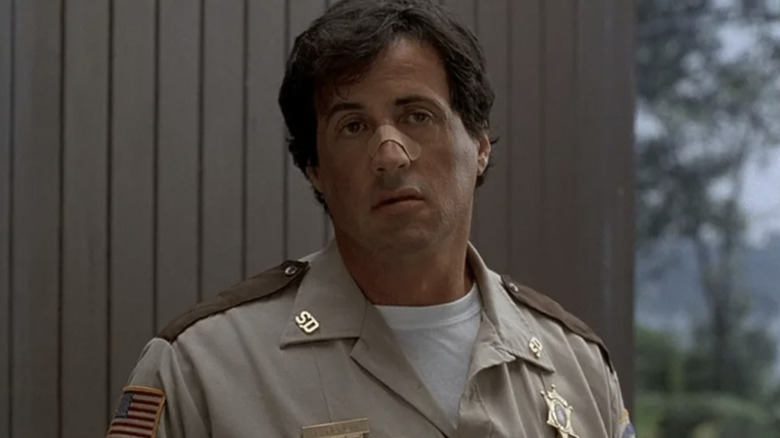James Mangold's Cop Land Wouldn't Have Been Made Without A Little Help From Sundance
One of the more well-known and fascinating obstacles that come with filmmaking is studio interference. There have been plenty of interesting stories from acclaimed directors behind blockbusters and lesser-known projects that have had to fight for the integrity of their vision. Sometimes it can be a losing battle, but there have been some pretty crazy stories in recent memory that showed the potential of staying true to the story you want to tell. The industry landscape has changed in recent years, where social media campaigns and crowdfunding can now help filmmakers to achieve their story aspirations without interference.
A more recent example would be Jim Cummings and PJ McCabe's "The Beta Test," a film that "circumvented the system" in the words of its directors, who made their film with no interference. In the case of films made decades earlier, it wasn't as easy. For example, director James Mangold's second-ever feature, "Cop Land," was one he initially found challenging to make. The story of a small-town sheriff going up against a community of corrupt New York Police officers was an exceptionally fascinating concept at the time. Still, some executives had trouble with the moral ambiguity of the story, especially the violent conclusion and the corrupt nature of some of the characters.
Pitch, Interrupted
In a retrospective piece on the film by Vulture, James Mangold discussed how his script for "Cop Land" was put on hold because "The few industry people [he] shared it with thought [he] should just keep working on it." The director would go on to make his directorial debut with "Heavy," and the time would eventually come for him to pitch "Cop Land" to a studio executive. However, as executives sometimes do, a decision was made without getting the complete picture:
"I got a meeting with the president of 20th Century Fox at that time and his development team. I pitched them the story. I remember the president of Fox interrupted me as I was giving the climax of the movie and goes, 'Wait a second. Does this deaf sheriff kill all these cops in your story?' I go, 'Yeah.' He goes, 'He kills all of them?' I go, 'Yeah. He has to. There's no surviving if he doesn't.' He goes, 'Well, we can't do that.' I never got to the end of the pitch. It just ended right there and then."
While this no doubt was a blow to the chances of "Cop Land" being made then, James Mangold would pull from another resource from filmmakers to garner interest in their projects. The Sundance Institute would put the director and his provocative script in the spotlight, providing multiple avenues for getting his film made.
'I found myself in the center of a tornado'
The Sundance Institute, a non-profit founded by actor Robert Redford, would live up to its initiative in boosting James Mangold's still burgeoning career. Mangold recalled his acceptance into the Sundance Labs with his script for "Cop Land" and the surge of interest that followed:
"During the production of 'Heavy,' we sent the 'Cop Land' script to the Sundance Labs, and I got in. That caused the script immediately to go on a hot-read list in Hollywood. I found myself in the center of a tornado. Major Hollywood producers made seven-figure offers for the script if I'd let it go and sell it. Major directors were stalking the script, and major actors wanted to meet to talk about the script."
Mangold eventually found a deal with Miramax that was to his liking, specifically because it guaranteed him as the director. The director didn't want to waste the opportunity Sundance gave him, primarily because of how he had lost a directing job in the past:
"I had all that paranoia because I had been fired at the age of 21 from a TV movie in Hollywood. When I found my way back again, having an opportunity to make a film, I was hell-bent on making it impossible for someone to cut me loose."
As the filmmaking landscape continues to change (for better or worse) with streaming and other avenues for release, the challenges of making a film have changed. One constant has been the Sundance Labs, which continue to highlight underrepresented stories and give a platform to aspiring filmmakers. Thanks to their program, Mangold was given a chance with his script and set a precedent for the quality of his future films. Considering he's made an "X-Men" movie and an "Indiana Jones" movie, I'd say James Mangold turned out alright.


